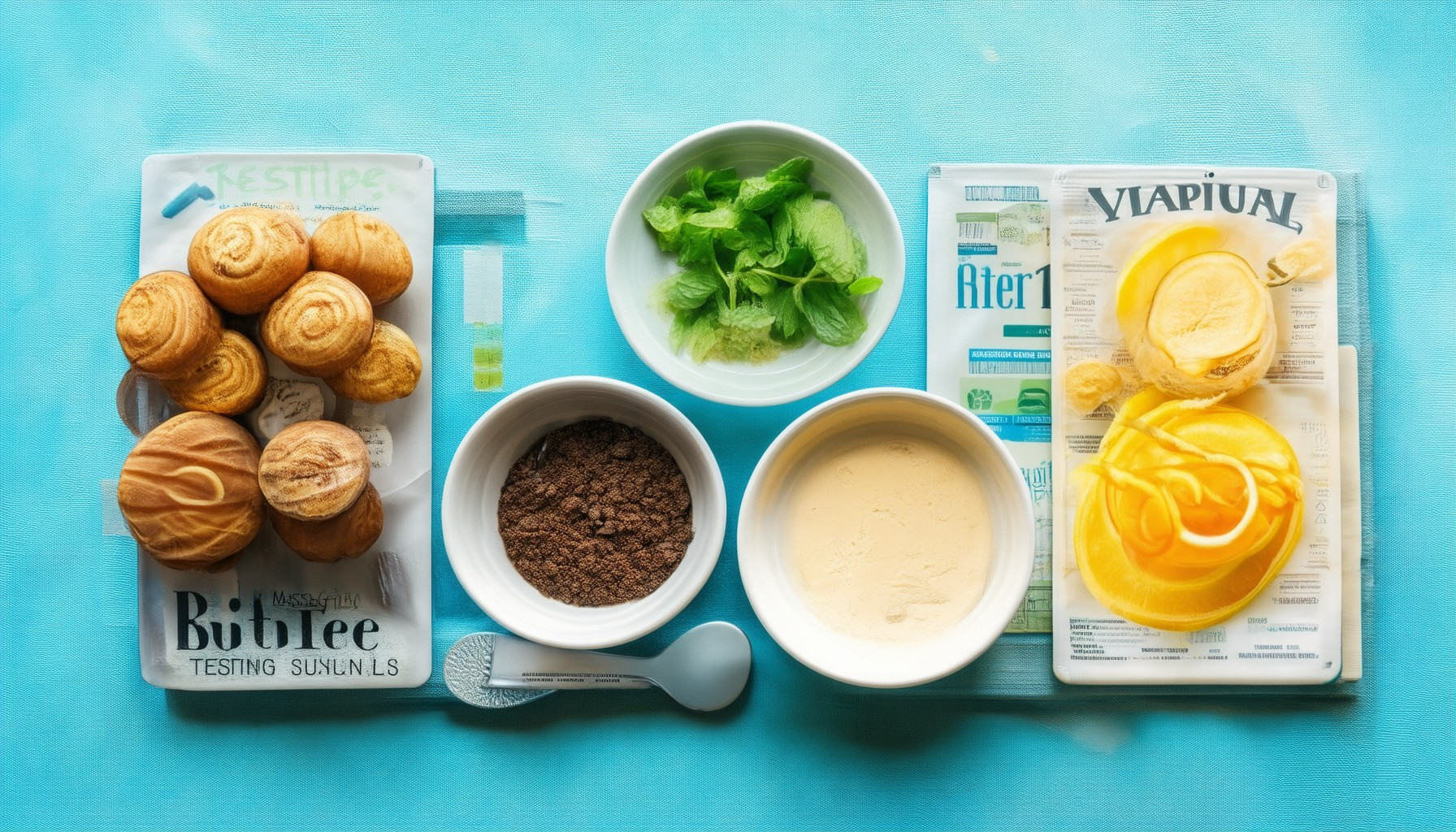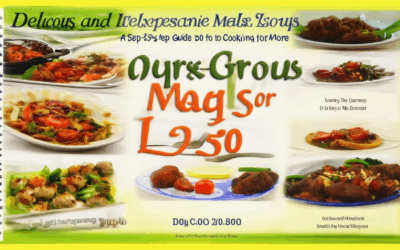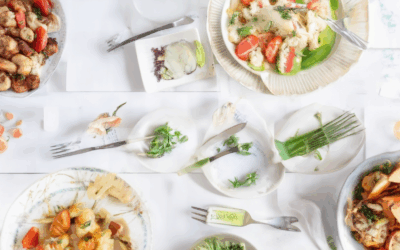Struggling with recipe success can be frustrating, especially when every detail matters. Whether you’re a home cook aiming to perfect your go-to dishes or a professional chef refining recipes for a food blog, mastering recipe testing tips is essential for ensuring reliability and quality. This comprehensive guide will walk you through the ins and outs of recipe testing, offering insights that will help you achieve consistent results every time. From understanding the best methods to evaluate ingredients and instructions to exploring the roles of a recipe tester, this article covers everything you need to know to excel in the kitchen. By following these expert tips, you’ll not only save time but also elevate your culinary creations. Let’s dive in and uncover the secrets to becoming a master of recipe testing!

Best Way to Test a Recipe
To ensure your recipe turns out perfect, follow these organized steps for testing:
- Before Cooking
-
- Read the recipe thoroughly to understand all steps and ingredients.
- Gather all necessary ingredients and tools beforehand.
- Double-check measurements and convert measurements if needed.
- Prepare mise en place to streamline the cooking process.
-
During Cooking
-
- Cook according to the recipe, paying attention to each step’s timing and temperature requirements.
- Use a timer to monitor cooking times accurately.
- Taste as you go, adjusting seasoning and flavor balance as needed.
- Keep the kitchen organized to avoid distractions during the process.
-
After Cooking
-
- Allow the dish to rest as recommended by the recipe to set flavors and textures properly.
- Inspect the final product for consistency, doneness, and visual appeal.
- Take notes on what worked well and areas for improvement.
- Share feedback with friends or family to get additional insights.
By methodically testing each component and adjusting as needed, you can refine your recipe for optimal success. Remember, every great cook learns through experimentation, so keep tweaking and enjoying the journey!
What is the average salary of a recipe tester?
The average salary of a recipe tester can vary depending on several factors including location, experience, and the size of the company or organization they work for.
Factors Affecting Salary:
- Location: Recipie testers in urban areas such as New York, Los Angeles, or Chicago tend to earn higher salaries compared to those in smaller towns or rural areas.
- Experience: More experienced recipe testers may earn significantly more due to their expertise and ability to handle complex projects.
- Company Size: Larger companies or well-known brands often offer higher salaries and benefits compared to smaller or independent firms.
Average Salaries:
On average, recipe testers can expect to earn between:
- Entry-Level: $35,000 – $45,000 annually
- Mid-Career: $50,000 – $65,000 annually
- Senior Level: $70,000 – $90,000 annually
Highest-Paying Cities for Recipe Testers:
- New York, NY
- Los Angeles, CA
- Chicago, IL
- San Francisco, CA
- Washington, D.C.
- Boston, MA
For more information about career opportunities and salary details, visit our careers page at Memories Restaurant .

5 Suggestions When Reading a Recipe
- Skim through the recipe first to get a quick overview of ingredients and steps.
- Look for keywords or specific techniques that might be unfamiliar to ensure you understand the process.
- Check the ingredient list early to confirm you have everything needed before starting.
- Visualize the dish by imagining each step and how it comes together to ensure you’re prepared mentally.
- Plan your next steps by marking key parts of the recipe, like tools or timing, to stay organized.

How to Become a Recipe Tester
To become a recipe tester, you’ll need a combination of culinary experience, attention to detail, and a passion for food. Here’s a step-by-step guide to help you get started:
- Understand the Role:** Recipe testers typically work with food brands, publishers, or restaurants to evaluate dishes for taste, texture, and consistency. The goal is to provide detailed feedback to improve recipes.
- Gain Culinary Experience:** Start by working in a professional kitchen, restaurant, or food-related business. This hands-on experience will give you a foundation in culinary techniques and food handling.
- Develop Tasting Skills:** Practice distinguishing between different flavors, textures, and qualities in food. This requires regular practice and exposure to various ingredients and dishes.
- Build Attention to Detail:** Pay close attention to the smallest details, as this is crucial for accurately evaluating recipes. Consider taking courses in sensory analysis or food science to enhance your abilities.
- Network Within the Culinary Community:** Attend food festivals, cooking classes, and industry events to connect with professionals who may offer opportunities or advice. Join online forums and groups dedicated to culinary enthusiasts.
- Create a Portfolio:** Document your tasting sessions and evaluations. Take photos of dishes, note your feedback, and compile these into a portfolio to showcase your skills to potential employers.
- Apply to Relevant Positions:** Look for job postings on platforms like ZipRecruiter or specialized websites for food professionals. Apply to roles as recipe testers, taste evaluators, or sensory analysts.
- Stay Updated on Trends:** Keep abreast of the latest culinary trends and innovations. This will help you better understand evolving consumer preferences and how they impact recipe development.
By following these steps and continuously refining your skills, you can establish yourself as a proficient and sought-after recipe tester.
What are the 7 questions of a cookbook reviewer?
Here are the essential questions a cookbook reviewer should ask to provide a comprehensive evaluation:
- How do the recipes perform?
- Assess whether the recipes deliver consistent results and are free from errors. Consider factors like taste, texture, and presentation.
- Are the ingredients accessible?
- Evaluate the availability and feasibility of sourcing the required ingredients, including any specialty items.
- Is the cooking method clear?
- Determine if the recipes provide precise and understandable instructions, making the preparation process manageable for cooks of all levels.
- Does the cookbook offer variety?
- Check the diversity of dishes available, catering to various dietary preferences and cooking styles.
- How is the cookbook presented?
- Examine the visual appeal, organization, and overall design of the cookbook, including photography and layout.
- Who is the intended audience?
- Identify the target demographic, such as families, professionals, or food enthusiasts, to help readers determine if the cookbook suits their needs.
- Is the value for money justified?
- Compare the cookbook’s price and content to assess its worth, ensuring it offers a good return on investment compared to similar titles.
These questions ensure a thorough and insightful review, helping readers make informed decisions based on the cookbook’s strengths and weaknesses.

Pros and Cons of Being a Recipe Tester
The role of a recipe tester involves tasting and evaluating dishes created from various recipes. While it may seem like a glamorous job, it comes with its own set of advantages and disadvantages.
Pros
- Creative Outlet: As a recipe tester, you get to explore different ingredients, cooking techniques, and cuisines, which can be a fun and creative experience.
- Eating for a Living: One of the most appealing aspects of this job is the opportunity to sample a variety of delicious foods, often at no cost to you.
- Learning Opportunities: Testing recipes allows you to gain valuable knowledge about cooking methods, ingredient combinations, and culinary traditions.
- Flexibility: Many recipe testers have the freedom to work on a freelance basis, allowing them to choose projects that align with their interests.
- Networking: You’ll have the chance to connect with professional chefs, food bloggers, and other culinary enthusiasts, which can open doors to future opportunities.
- Contribution to Success: Your feedback can play a crucial role in refining recipes and helping creators bring their ideas to life.
Cons
- Health Risks: Tasting unfamiliar dishes can expose you to potential allergens or bacteria, posing serious health risks.
- Pressure to Perform: Providing honest and constructive feedback can be challenging, especially when the creator has invested time and effort into their recipe.
- Time-Consuming: Testing multiple recipes can be time-intensive, particularly if you’re working on several projects simultaneously.
- Unpredictable Results: Not all recipes will be successful, and you may encounter situations where the final dish doesn’t meet expectations.
- Travel Requirements: Some testing assignments may require you to travel, which can be inconvenient or costly depending on your location.
- Lack of Stability: The demand for recipe testers can vary significantly, making it a less stable career option.
While the role of a recipe tester offers unique benefits, it’s important to weigh these against the potential challenges. If you’re passionate about food, cooking, and helping others, this could be the perfect opportunity for you. Apply today and embark on a culinary adventure that combines taste, creativity, and collaboration!
Apply Now





0 Comments